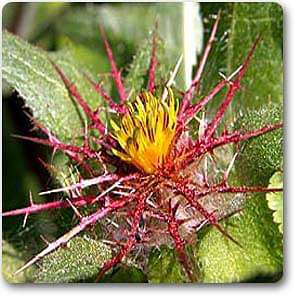
Cnicus benedictus - Plant
(MRP Inclusive of all taxes)
- Shipping ₹79 for entire order
- Dispatch in 7 days
- Country of origin: India

(MRP Inclusive of all taxes)
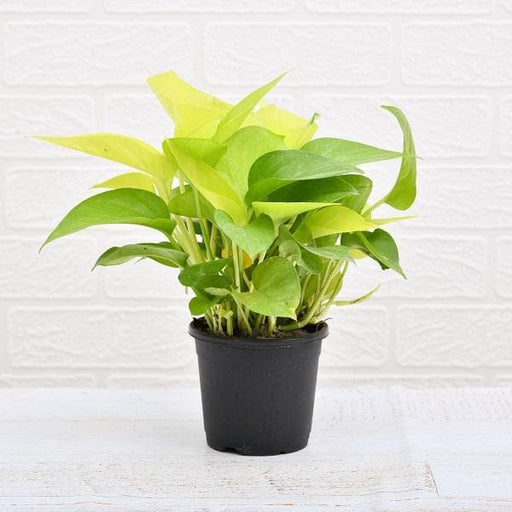 Save 29%
Save 29%
Air Purifier Money Plant with Pot The Air Purifier Money Plant, also known as Pothos or Epipremnum aureum, is a stunning indoor plant that...
View full details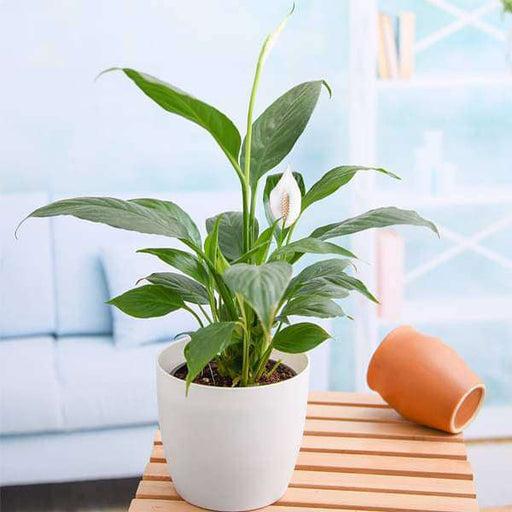
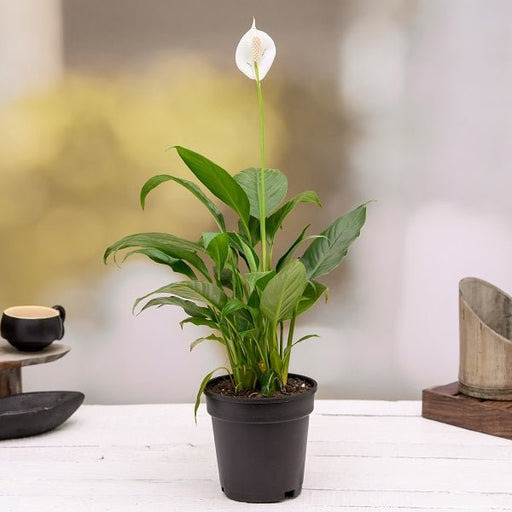 Save up to 15%
Save up to 15%
Peace Lily, Spathiphyllum - Plant The Peace Lily, scientifically known as Spathiphyllum, is a stunning houseplant celebrated for its elegant white...
View full details
 Save 25%
Save 25%
Jasminum sambac, Mogra, Arabian Jasmine - Plant Jasminum sambac, commonly known as Mogra or Arabian Jasmine, is a fragrant flowering plant...
View full details
 Save 18%
Save 18%
Combo Constituents Includes the Parijat Tree (Night-Flowering Jasmine), a culturally significant plant with fragrant flowers. Description The Pari...
View full details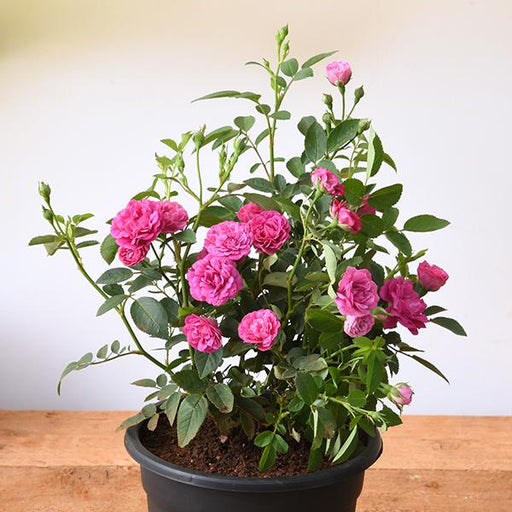
 Save 25%
Save 25%
Miniature Rose, Button Rose (Any Color) - Plant The Miniature Rose, also known as the Button Rose, is a charming and compact flowering plant that ...
View full details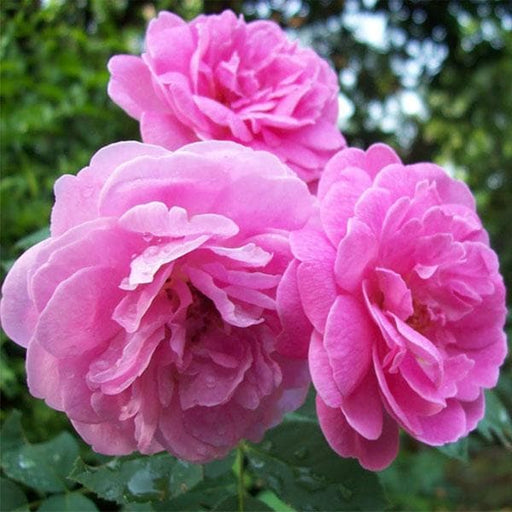 Save 25%
Save 25%
Damascus Rose, Scented Rose (Any Color) - Plant The Damascus Rose, also known as Rosa damascena, is a timeless symbol of beauty and romanc...
View full details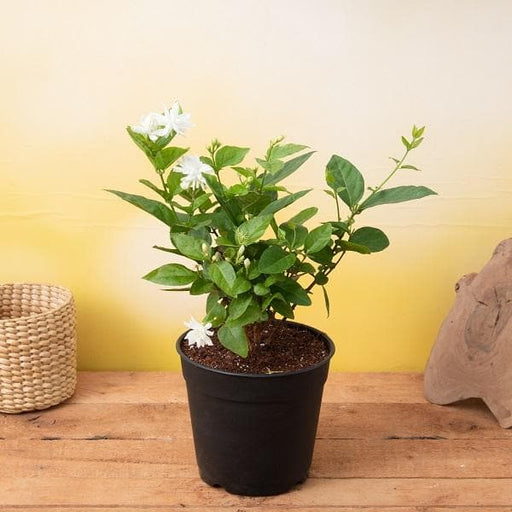
 Save 17%
Save 17%
Beautiful Fragrant Mogra, Arabian Jasmine Plant with Pot The Beautiful Fragrant Mogra, also known as Arabian Jasmine (Jasminum sambac), is...
View full details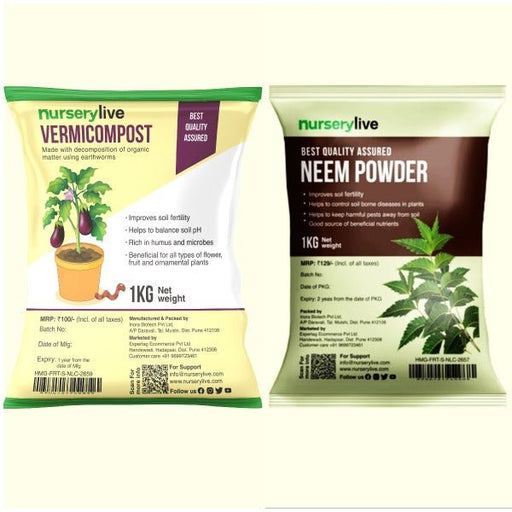 Save 15%
Save 15%
Pack of Vermicompost and Neem Cake for House Plants Transform your indoor garden with our premium Pack of Vermicompost and Neem Cake, spec...
View full details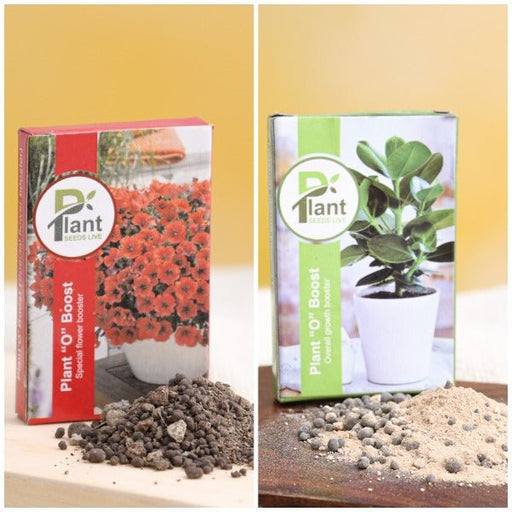
Pack of Plant Growth and Flower Boosters Unlock the full potential of your garden with our Pack of Plant Growth and Flower Boosters! This ...
View full details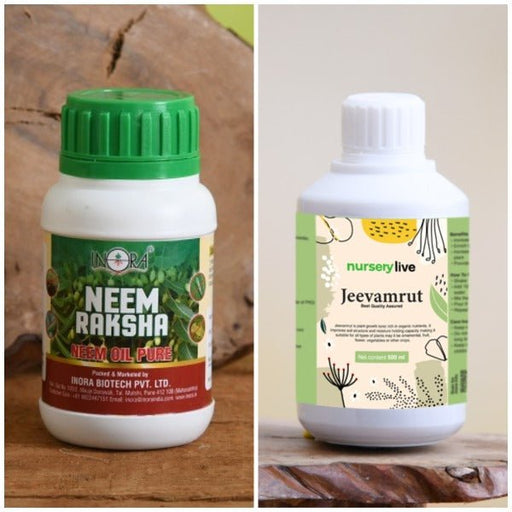 Save 38%
Save 38%
Combo of Jeevamrut and Neem Raksha for Easy Growth and Protection of Houseplants Transform your indoor garden with our exclusive combo of ...
View full details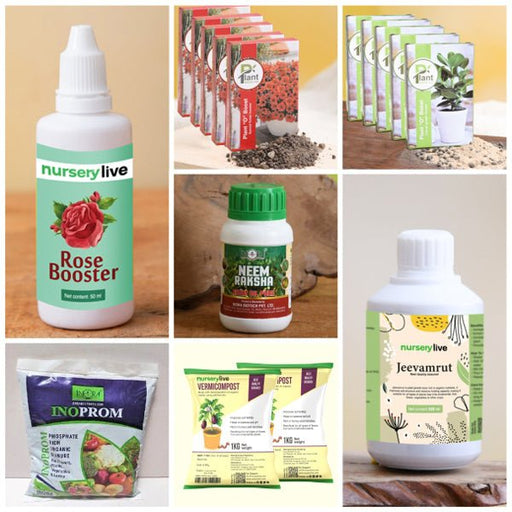 Save 22%
Save 22%
Plant Nutrients Kit (Pack of 16) for a Healthy Garden Transform your garden into a lush paradise with our Plant Nutrients Kit, featuring 1...
View full details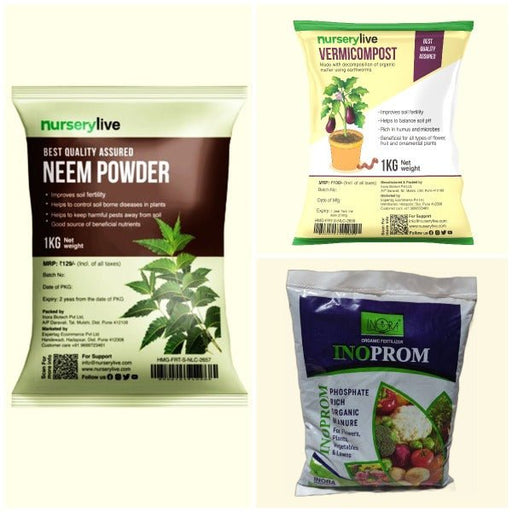 Save 16%
Save 16%
Combo of Top Plant Fertilizers Elevate your gardening game with our exclusive Combo of Top Plant Fertilizers, featuring two bags of premiu...
View full details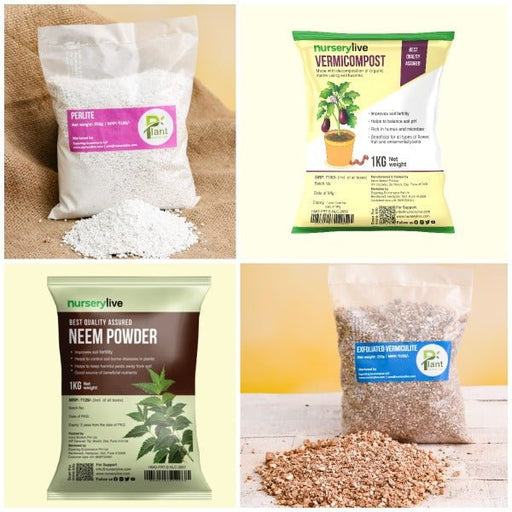 Save 24%
Save 24%
Pack of 4 Additives to Make Soil Healthy and Nutrient Rich Transform your garden into a thriving ecosystem with our Pack of 4 Additives de...
View full details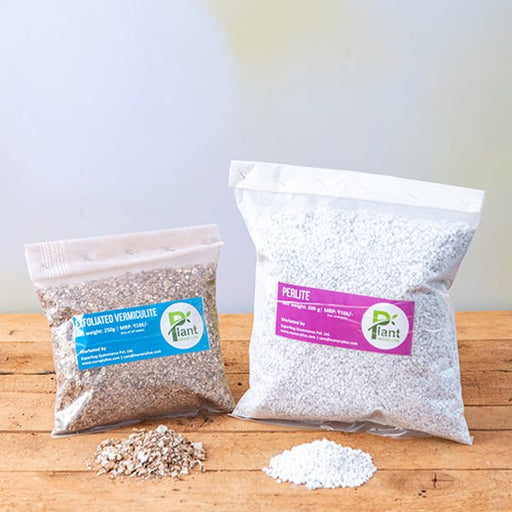 Save 30%
Save 30%
Transform your gardening experience with our premium Combo of Perlite and Vermiculite. This unique blend is designed to enhance soil aeration and ...
View full details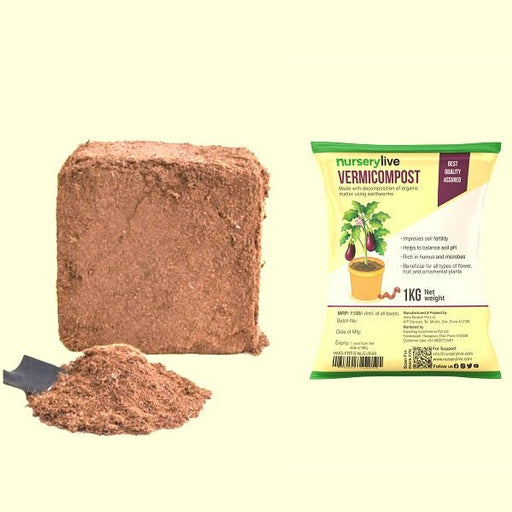 Save 27%
Save 27%
Combo of 2 Vermicompost and Cocopeat - Enrich Your Soil Naturally! Transform your garden into a thriving ecosystem with our Combo of 2 Ver...
View full details
 Save 35%
Save 35%
Best 6 Plants for Perfect Indoor Garden Transform your living space into a lush oasis with our curated collection of the Best 6 Plants for a...
View full details
 Save up to 50%
Save up to 50%
Mini Succulent Garden Pack Transform your space with our Mini Succulent Garden Pack, featuring a delightful collection of 4 any variety beautiful s...
View full details
 Save 30%
Save 30%
5 Best Fragrant Plants Transform your garden or indoor space into a fragrant paradise with our curated selection of the 5 Best Fragrant Plants. Th...
View full details
 Save 24%
Save 24%
Set of 2 Bonsai Looking Grafted Adeniums Transform your indoor or outdoor space with our exquisite Set of 2 Bonsai Looking Grafted Adenium...
View full details Save 45%
Save 45%
Top 4 Die Hard Succulents Pack Transform your indoor or outdoor space with our Top 4 Die Hard Succulents Pack, featuring a curated selecti...
View full details
 Save 30%
Save 30%
5 Best Indoor Plants Pack Transform your living space into a lush oasis with our '5 Best Indoor Plants Pack.' This carefully curated collection fe...
View full details
 Save 25%
Save 25%
Set of 4 Evergreen Air Purifier Plant Pack Transform your indoor space into a lush, green oasis with our Set of 4 Evergreen Air Purifier Pla...
View full details| SrNo | Item Name |
|---|---|
| 1 | Cnicus benedictus - Plant |
Cnicus benedictus, commonly known as Blessed Thistle, is a striking herbaceous plant belonging to the Asteraceae family. Renowned for its vibrant yellow flowers and spiky leaves, this perennial plant thrives in Mediterranean climates. Historically, it has been used for its medicinal properties, particularly in traditional herbal medicine, making it a valuable addition to any garden or herbal collection.
What makes Cnicus benedictus special is its rich history as a medicinal herb, dating back to ancient times. It has been utilized for its potential health benefits, including digestive support and appetite stimulation. This resilient plant not only adds beauty to your garden but also serves as a natural remedy, making it a favorite among herbalists and gardeners alike.
One of the standout features of Blessed Thistle is its ability to attract beneficial pollinators, such as bees and butterflies, contributing positively to the ecosystem. Its drought-resistant nature makes it an excellent choice for sustainable gardening, allowing it to thrive in less-than-ideal conditions while providing essential habitat for wildlife.
If you’re looking for a plant that’s not just a pretty face, Cnicus benedictus, also known as blessed thistle, is your go-to green companion. This spiky superstar is packed with health benefits, from aiding digestion to boosting your immune system. It’s like having a personal trainer for your insides, helping you feel fabulous while you sip your herbal tea. Plus, it’s a natural remedy for those pesky ailments that just won’t quit. Who knew a plant could be your best friend in wellness?
Ready to channel your inner gardener? Cultivating Cnicus benedictus is like hosting a party for plants—just make sure they have plenty of sunlight and well-drained soil. This resilient beauty thrives in poor conditions, so you can feel like a gardening guru even if your thumb is more of a shade of beige. With a little patience and care, you’ll have a flourishing patch of blessed thistle that’ll make your neighbors green with envy.
Cnicus benedictus isn’t just a pretty plant; it’s a multitasking marvel! From herbal teas to tinctures, this botanical wonder has a plethora of uses. It’s like the Swiss Army knife of the plant world, ready to tackle everything from digestive woes to skin irritations. So, whether you’re brewing a calming cup or whipping up a homemade remedy, this plant is your trusty sidekick in the quest for holistic health.
Sip, sip, hooray! Cnicus benedictus tea is the herbal hug you didn’t know you needed. With its slightly bitter taste, it’s like the rebellious cousin of chamomile—bold and unapologetic. This brew is not just a delightful drink; it’s a wellness elixir that can help with digestion and detoxification. So, brew a cup, kick back, and let the magic of blessed thistle work its wonders while you pretend to be a sophisticated tea connoisseur.
If your tummy is throwing a tantrum, Cnicus benedictus is here to save the day! This plant has been used for centuries to support digestive health, acting like a gentle bouncer for your gut. It helps ease bloating and discomfort, making it the perfect companion for those post-pasta regrets. So, next time your stomach feels like a drama queen, reach for some blessed thistle and let it work its soothing magic.
Step aside, modern medicine; Cnicus benedictus is here to reclaim its throne in the herbal kingdom! This plant has been a staple in traditional medicine for ages, known for its anti-inflammatory and antimicrobial properties. It’s like the wise old sage of the plant world, offering remedies for various ailments. So, whether you’re concocting a potion or simply looking to boost your health, blessed thistle is the herbal hero you’ve been waiting for.
Want to grow Cnicus benedictus? It’s easier than pie—if pie were a resilient, drought-tolerant plant! This beauty loves full sun and well-drained soil, making it the diva of the garden. It can handle poor soil like a champ, so you don’t need to be a soil scientist to make it thrive. Just plant it, water it occasionally, and watch as it flourishes, proving that sometimes, less really is more in the gardening world.
Buzz, buzz! Cnicus benedictus is not just a treat for humans; it’s a bee magnet! This plant attracts pollinators like a magnet, making it a fantastic addition to your garden if you want to support our fuzzy friends. With its vibrant flowers, it’s like throwing a party for bees, providing them with nectar and pollen. So, plant some blessed thistle and watch as your garden transforms into a buzzing haven of activity.
Travel back in time with Cnicus benedictus, a plant that has been revered since ancient days! Used by herbalists and healers, this thistle has a rich history of medicinal applications. It’s like the celebrity of the herbal world, with tales of its use in treating everything from fevers to digestive issues. So, when you sip your blessed thistle tea, you’re not just enjoying a drink; you’re partaking in a centuries-old tradition of wellness.
While Cnicus benedictus is a superstar in the herbal world, it’s not without its quirks. Some folks might experience mild side effects, like stomach upset or allergic reactions. It’s like that friend who’s always the life of the party but occasionally spills a drink. So, if you’re new to this plant, start slow and listen to your body. After all, even the best herbal remedies can have their off days!
Get ready to unleash your inner chef with Cnicus benedictus recipes! This plant isn’t just for tea; it can be a zesty addition to salads, soups, and even smoothies. Imagine tossing some blessed thistle leaves into your next culinary creation for a unique twist. It’s like adding a secret ingredient that’ll have your friends guessing what makes your dish so special. So, roll up your sleeves and get creative—your taste buds will thank you!
Cnicus benedictus, also known as blessed thistle, is a spiky plant with a flair for drama. This herbaceous wonder is celebrated for its medicinal properties, often used to support digestion and stimulate appetite. With its striking appearance and historical significance, it’s the plant equivalent of a celebrity at a wellness retreat.
Cnicus benedictus thrives in sunny, well-drained areas, often found in Mediterranean regions. Think of it as the sunbather of the plant world, soaking up rays and spreading its spiky charm. It can also be spotted in gardens and wild areas, proving that it’s not shy about making an appearance.
This plant is like a Swiss Army knife for your health! Cnicus benedictus is known for its digestive support, liver health, and even as a galactagogue for nursing mothers. It’s a multitasker that can help you feel your best while adding a touch of herbal elegance to your life.
Using Cnicus benedictus is as easy as brewing a cup of tea! You can steep its dried leaves or flowers in hot water for a delightful herbal infusion. Alternatively, it can be found in tinctures or capsules, making it a versatile addition to your herbal arsenal. Sip, savor, and enjoy!
While Cnicus benedictus is generally safe, it’s not a one-size-fits-all solution. Pregnant or nursing women and those with allergies to plants in the Asteraceae family should consult a healthcare professional before diving in. Always remember, even the most charming plants can have their quirks!
Absolutely! Cnicus benedictus is a resilient plant that can be grown in your garden or even in pots. Just give it plenty of sunlight, well-drained soil, and a little love. Before you know it, you’ll have your very own herbal superstar right at home!
Imagine a bold, earthy flavor with a hint of bitterness—Cnicus benedictus has a taste that’s not for the faint of heart. It’s often described as slightly spicy, making it a unique addition to herbal teas. If you enjoy adventurous flavors, this plant will tickle your taste buds!
Cnicus benedictus is like a personal trainer for your digestive system! It’s known to stimulate bile production, which aids in breaking down fats and improving digestion. So, if your tummy is feeling sluggish, this herb might just be the pep talk it needs to get moving!
While Cnicus benedictus is generally well-tolerated, some may experience mild side effects like stomach upset or allergic reactions. It’s always wise to start with a small dose and see how your body responds. Remember, even the most charming plants can have a mischievous side!
Yes, indeed! Cnicus benedictus can add a unique twist to your culinary creations. Its leaves can be used in salads or as a garnish, while the dried flowers can be brewed into tea. Just be prepared for a flavor that’s a bit bold—your taste buds will thank you for the adventure!
You can find Cnicus benedictus at health food stores, herbal shops, or online retailers. Just make sure to choose a reputable source to ensure you’re getting the good stuff. With a little online sleuthing, you’ll have this herbal gem delivered right to your doorstep!
Not quite! While both Cnicus benedictus and milk thistle belong to the Asteraceae family, they have different properties and uses. Milk thistle is primarily known for liver support, while Cnicus benedictus shines in digestive health. Think of them as friendly rivals in the herbal world, each with their own specialties!